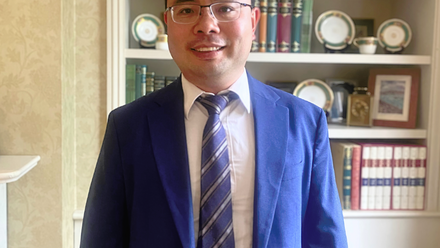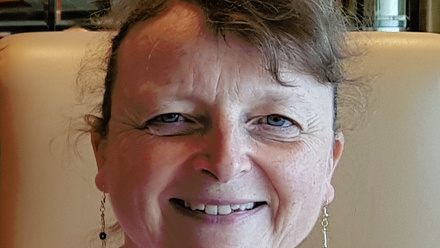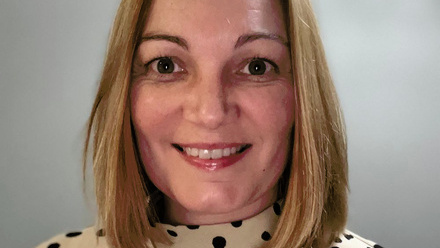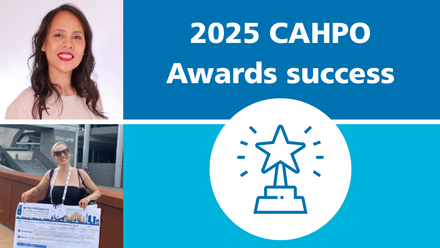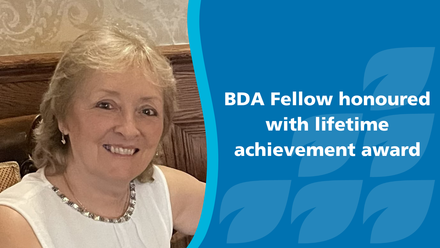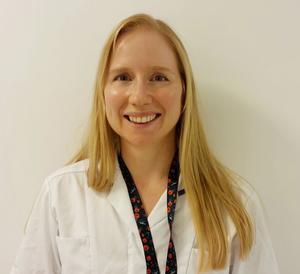
Jennie Brown is a Paediatric Diabetes Dietitian at Mersey and West Lancashire Teaching Hospitals NHS Trust. Jennie has been nominated by her peers and bestowed an Ibex Honour in recognition of her personal commitment and significant contribution to the BDA and the profession for over five years in the field of paediatric diabetes dietetics.
As an active member of the BDA Diabetes Specialist Group and its BDA Paediatric Diabetes Sub-Group (PDSG), Jennie has volunteered in a variety of roles within the specialist group, including being Vice Chair of the PDSG.
Jennie has contributed to CPD through study days and webinars and has represented the BDA at both national and international levels. She has led and completed significant work to improve dietetic management of paediatric diabetes for patients and others working in this specialist area. As one of the few dietetic supplementary prescribers, she encourages colleagues to enhance their clinical practice for improved patient care.
Jennie is committed to advancing the profession, supporting colleagues, and improving diabetes care for children and young people. We asked Jennie about her work and what this honour means to her.
What does it mean to you to receive the Ibex honour?
What a privilege it is to receive the Ibex honour! I have truly valued volunteering for the PDSG over the last several years. My work has presented me with the opportunity to work alongside some fantastic and really passionate dietitians. Special thanks to the PDSG committee, the hospital team I work with at Whiston and St Helens, and to my manager (Claire), who have all provided support along the way.
What drove you to become a dietitian in the first place and be where you are today?
Science subjects were always appealing at school and anything food-related would spark my attention. No small surprise then, that dietetics came top of the suggestions list from my careers questionnaire.
Being quite into exercise, an increasing attention to performance diets was a natural evolution to my food interests, and so sports dietetics seemed the way to go. However, early on in my placements, I was most interested in the nutritional treatment of medical conditions and improving clinical outcomes. The challenges involved in diabetes and paediatrics were particularly appealing. Fortunately, a paediatric role came up just in time for my final exams at university.
I volunteered at a week-long Diabetes UK children’s holiday that first summer as a dietitian and, since then, I have not looked back. I love working in the rapidly developing area of paediatric diabetes and feel so lucky to be able to do a job I love.
Who inspires you?
Initially, I was inspired by my mum, who was diagnosed with diabetes (LADA) when I was young. Witnessing her (mis)diagnosis journey and both the positive and negative interactions she had with healthcare professionals was insightful. This experience motivated me to try and become a healthcare professional who could influence the families I worked with in a beneficial and empowering way.
Subsequently, the patients and families I support continue to inspire me daily through the amazing things they achieve, with the additional time and emotional burden that living with diabetes imposes. I am also inspired by national figures influencing dietetics in the field of paediatric diabetes at both national and international levels (e.g. John Pemberton and Francesca Annan) who tirelessly contribute their expertise to the profession, particularly around sports and technology.
The dietitians involved in research in paediatric diabetes are hugely inspirational and I feel very privileged to be part of the Northwest Children and Young People's Diabetes Network, which comprises such a motivated and passionate group of dietitians, always happy to share resources and their experience for the benefit of others working in the area.
From a non-dietetic point of view, when I was 14 I started kickboxing. The two brothers who ran the club had both achieved very high rankings in the sport and taught discipline and attention to detail; repetition and practice were not to be viewed as drudgery but as a necessary path towards excellence. I progressed through the belts, being assessed and critiqued as I moved up the rankings. I learned to continuously evaluate my own performance and understand that practice really can make perfect.
What advice would you give to future dietitians?
Work hard and take every opportunity to expand your knowledge and experience. Empathy is crucial. To that end, it is particularly valuable to gain understanding of your patients’ experience of living with their condition. Approaches for this are not so straightforward as the usual CPD.
Practical examples might include volunteering at patient-led events, leading patient focus groups, or, where safe and feasible, trialling the medical treatment/interventions for yourself (i.e. wearing a pump and sensor with carb counting of all foods eaten, following a gluten-free diet, etc.).
The improved understanding of your patients’ experience is worth the effort and can only make for a more effective practitioner.
What has been the highlight of your dietetic career to date?
Completing my MSc and receiving the MSc Paediatric Dietetic BDA Paediatric Group Prize for achieving the highest overall mark on the programme was definitely a highlight. More recently, becoming a supplementary prescriber was a gratifying achievement.
Contributing to the programme of the PDSG has also been extremely rewarding. The PDSG’s work supporting dietitians aspiring to work, or already working within the area of paediatric diabetes is very valuable. I’m honoured to have shared this effort with a super-enthusiastic group.
However, by far the most satisfying element of my role has been the opportunity to make a difference to the lives of patients and families living with diabetes and helping them to achieve meaningful and beneficial outcomes.


